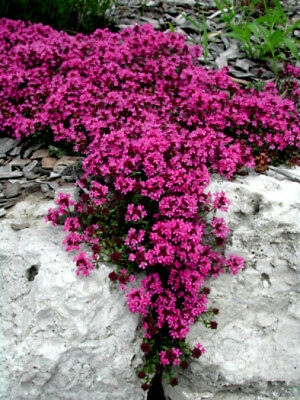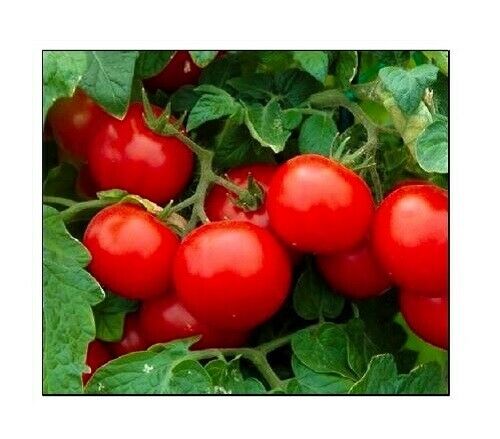-40%
10 Adenium Obesum Desert Rose seeds- Orange Red- RARE USA SELLER
$ 4.74
- Description
- Size Guide
Description
10Adenium Obesum Desert Rose
seeds
-
Orange Red
- RARE
USA SELLER
Fresh seeds
Purchased with a Phytosanitary Certificate
Seed Sowing – A Pictorial Guide for Beginners
We fairly frequently get requests from new members of this group for information on seed sowing. So I am preparing a short paper on ‘how to’ for our members.
EQUIPMENT:
I find it best to sow Adenium seeds in plastic window boxes for amounts over 20 seeds and shallow plastic pots (pans) for quantities less than this. Sowing seeds is a delicate operation and vision is very important. If you are over 40 you will need an extra strong pair of reading glasses. Also, placing the seeds is a very ‘fiddley’ operation and the use of dental tweezers is recommended. This also prevents the fingers from any possible contamination of the seed. I live on a farm, which has a few hundred acres of virgin forest, where we collect good quality leaf mould. I am also fortunate in that I have a small river traversing our property and therefore have a never ending supply of course river sand. If you have to purchase compost, then a good quality cactus compost will do perfectly. This is what you will need:
POTS wide and shallow, or window boxes. If these are not new then they must be spotlessly clean; they need to be washed, scrubbed with a brush and allowed to dry before use.
COMPOST: I use a mix of half virgin forest leaf soil and half very course river sand. A good quality commercial cactus compost will do just as well. A topping of very course sand is recommended.
FERTILIZER: A small supply of granular 20.20.20 with trace elements or something similar.
SUNDRIES:
Labels
Pencil
Rubber eraser
Pencil sharpener
Plastic cling film
Dental tweezers
Large kitchen sieve
Fungicide
Foliar fertilizer, low in nitrogen.
SEEDS: If your seeds are fresh they should be sown straight away. If they are imported or not absolutely fresh they must be soaked. For imported seeds, I soak them for one hour in water, then change the water and add a pinch of powder fungicide (any make will do) and give them a further soak for another hour. They are then rinsed in a kitchen sieve and are now ready to be planted.
Seeds soaking in fungicide Seeds drained,
rinsed and ready for planting
PLANTING: Put about one inch of compost in your container and sprinkle lightly with granular fertilizer. Now fill the container to about half an inch from the top. Seeds should be spaced at least one inch apart. This gives them room to grow quite large ready to be potted straight into 4 inch pots or small plastic bags. Count the number of seeds you have and make the same number of little depressions in the compost so that the seeds will fill the container without a big gap!
containers ready for planting
Now plant the seeds, the use of tweezers greatly facilitates this job and makes planting very even
When the seeds are all planted cover them with a sprinkling of very course sand.NEXT PUT IN YOUR LABEL.Then gently water the container.
COVER THE CONTAINER WITH CLING FILM: Modern cling film is now much easier to handle than it used to be. We cut off a piece of cling film, just a little larger than the container, put it in water and stretch it over the container. If it is wet it will cling by itself. We used to tie a string of rubber grafting strips to hold the cling film onto the pots or containers but rarely bother now as all we need to do if the cling film starts to come off is just to re-wet it and it will re-attach itself. Adenium seeds although coming from a very dry region need 100% humidity to germinate and it is very important to cover the containers with cling film. Then place the containers in a warm shady place.
Window box with cling film
Pots with cling film
If the containers are kept too wet too long, the seeds will ‘damp off’. Therefore as soon as all the seeds have germinated it is important to remove the cling film. We usually remove it after about 10 days or as soon as the tops of the seeds start poking into the cling film.
seedlings just ready for the cling film to be removed
About 10 days later
About 2 months later
Sometimes the seedlings fail to shed their testa (seed coat). If this is not removed they will be strangled and die. To remove the testa is a very delicate job. First, spit on your thumb and index finger and place the spittle over the brown coat. This will soften it and in about 10 minutes you should be able to gently ease the testa off using both your thumb nails or tweezers. Sometimes a membrane still remains and this is even more difficult to remove. Just re-wet the seedling and after about 5 minutes gently rub the membrane off, with any luck, without decapitating the seedling!
Some people advise the use rubber gloves to do this as Adeniums are extremely bitter and toxic. However, I find it impractical as I like to use my thumb nails. But, IMMEDIATELY after handling any Adenium it is essential to wash your hands very thoroughly.
Seedling needing help to get their hats off!
UNUSUAL SEEDLING: Sometimes the occasional seedling will be of a different colour. Pink or white. The seedlings with white cotyledons are albinos and will die as they have no chlorophyll to sustain them, the pink colouring of the stem is a sort of sunburn. They can be saved by micro-grafting but I have never produced anything good from them. The pink seedlings with yellowish cotyledons may survive if grown in shade but again, they are runts and should be discarded.
WHITE FLOWERED SEEDLINGS: Seeds which will have white flowers produce seedlings with no red coloration in their stems. The stems instead are of a lovely jade green color.
A single white flower to be with a green stem amongst its coloured siblings
Occasionally a seedling will appear amongst others with a jade green stem. This
seedling will produce white flowers. If you wish to keep this seedling separate,
then NOW is the time to transplant and label it. The jade green stem is ephemeral
and will vanish later. After two or three weeks the white flower to be seedling
will be difficult or indeed impossible to differentiate from its siblings.
Seedlings which will produce white flowers
Two genetic white Adeniums crossed together will invariably give virtually 100% white flowered seedlings as shown in the above two photos.
GROWING ON: As soon as the seedlings have produced their first pair of true leaves, they can have a little more light. We spray them with foliar feed at the lowest recommended rate on the packet at least once a week and about every five days if we can remember. This enormously speeds up their growth rate. After about three months they should be ready to be transplanted into individual containers.
Seedling straight from the seed tray ready to be potted up & seedlings potted up
After potting up the seedlings we keep them in shade for about ten days to a fortnight. Then they go into semi shade for a month and then finally out into full sun. The seedlings start to flower in about eight months from seed sowing.
Important, Please read
All seeds have been test sown to ensure germination. Please familiarize yourself with growing conditions and instructions for your seeds before you plant them, as all seeds are different. Basic growing instructions can be found under each listing.
We Cannot Guarantee how much you will be able to grow, as too many variables come into play, soil condition, your ability to garden, weather etc. I guarantee that they arrive as described and are in good viable condition and the germination rates are accurate.











